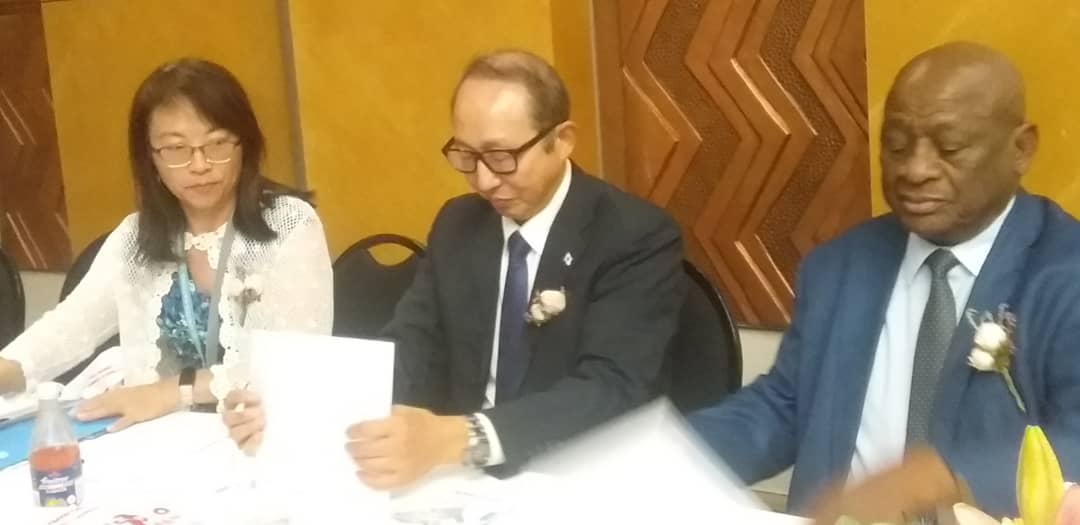The government of Japan has funded 24 trilateral projects valued at US$17,2 million (N$320 million) since 2013 in Namibia, which were successfully implemented by various United Nations agencies.
This was said by Hisao Nishimaki, Japanese ambassador to Namibia, when he launched the Japan supplementary budget funding joint project in Windhoek on Monday morning.
“The two projects we are launching today are not included in this funding,” he said.
Ambassador Nishimaki said the first project to be implemented together with the Ministry of Health and Social Services in conjunction with the Japanese government through the World Health Organisation (WHO) is to combat malnutrition in Namibia.
“The project titled ‘Increasing access to Quality Nutrition and Protection Services for Vulnerable Population including women and children in Omaheke, Khomas and Kunene regions’ has been funded to the tune of US$500 000 (N$9,3 million),” said the ambassador, adding that it is for a period of 12 months.
The second project, titled “Emergency response to enhance resilience and mitigate climate-induced impacts of livelihoods, food and nutrition security of the most vulnerable households in Namibia) Kavango East, Kavango west and Ohangwena regions)” will be implemented by the Food and Agriculture Organisation (FAO) together with the Ministry of Agriculture, Water and Land Reform.
This project will be funded to an amount of US$758 916 (N$14,2 million) and will be for a period of 12 months, the ambassador added.
Nishimaki said WHO had implemented five projects in collaboration with the Japanese government including the latest one with a combined value of more than US$2 million (N$37 million), which has been utilised mainly to address health emergencies and to build resilient health systems in Namibia.
“On the other hand FAO have three projects, including the latest one with a combined value of US$2,18 million (N$40 million), mainly utilised in building resilience amongst small holder farmers to better cope with climate-induced emergencies and at the same time help improve the livelihoods of the rural communities,” he added.
He said this can be achieved by introducing innovative climate smart technologies, ensuring that farmers receive appropriate agro-inputs and that they are linked to strategic markets.
– email: matthew@namibian.com.na
Stay informed with The Namibian – your source for credible journalism. Get in-depth reporting and opinions for
only N$85 a month. Invest in journalism, invest in democracy –
Subscribe Now!






